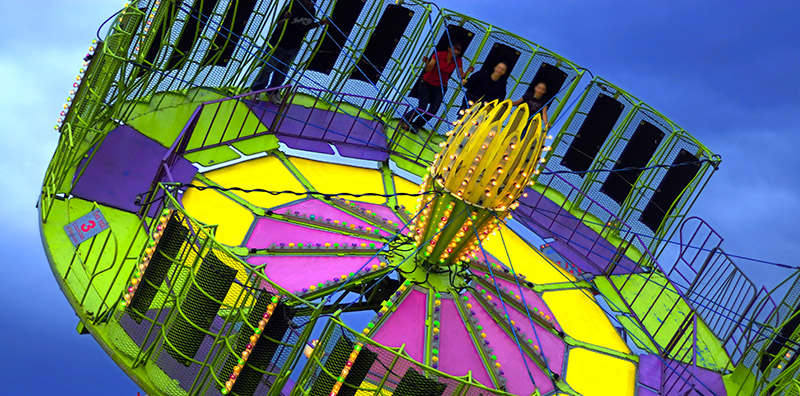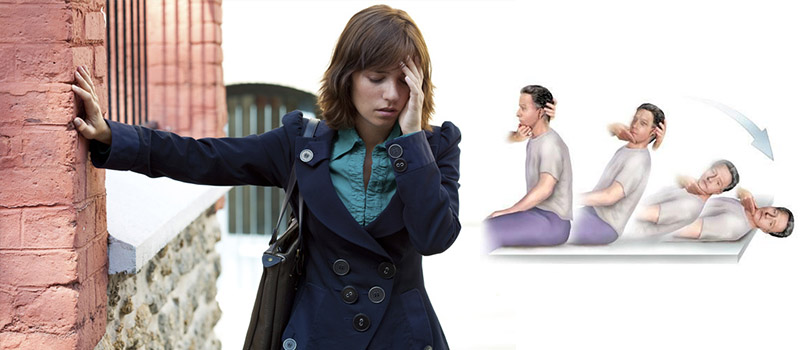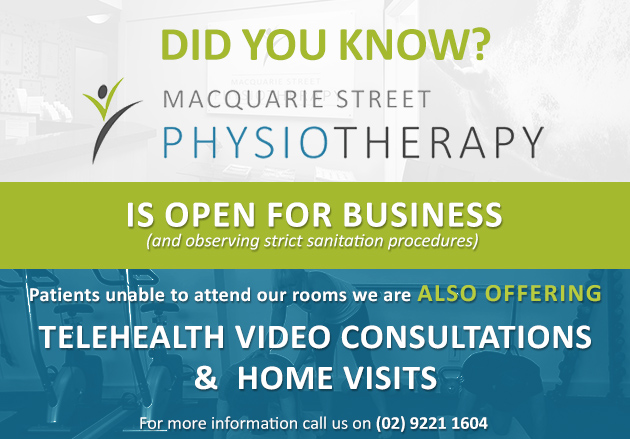Dizziness & Vertigo – Sydney City CBD
If you suffer from dizziness and vertigo in Sydney we may be able to help. Vertigo and dizziness may result from problems with your inner ear, which affect your balance. Some types of vertigo and dizziness respond to specific head and neck manoeuvres to correct the problem. At Macquarie Street Physiotherapy there are physiotherapists who can treat this dizziness and give you strategies to use at home.

What is Vertigo?
Vertigo is the symptom of a particular type of balance disorder in which you experience the sensation of dizziness, spinning or being giddy or unsteady. The cause of vertigo varies but it generally involves the inner ear. It affects a large percentage of the population on a daily basis (one in three people will experience at least one episode in their life).
What is BPPV?
One of the most common causes of vertigo is Benign Paroxysmal Positional Vertigo (BPPV). BPPV affects the semicircular canals (balance mechanism) of the inner ear.
The condition is caused by minute calcium carbonate crystals in the inner ear dislodging, through degeneration or trauma (e.g., falling over). These crystals then gravitate from their usual place in the ear to the region of the inner ear which contains sensory organs. Once they reach this region, they trigger vertigo, as a signal is sent to the brain that rotational movement is occurring. The condition occurs in one or sometimes both ears.
How is BPPV treated?

The treatment of dizziness/BPPV is called “vestibular rehabilitation”. Firstly, the vestibular physiotherapist may use infrared video goggles to record the eye movement which reveals the presence of BPPV. Then vertigo can be dramatically relieved by specialist techniques performed by our physiotherapists skilled in this area. These techniques (Epley or Canalith repositioning manoeuvres) are quick and effective. The goal is to move the crystals out of that part of the inner ear where they are causing the problem. The techniques are almost always effective, with 80% of cases resolving after one treatment. If left untreated the condition may resolve spontaneously in weeks to months. However, in about 30% of people it may persist for years. In those where it is left untreated, relapses may occur in 20-30% of patients.
If a recurrence occurs or there is not complete relief of symptoms after the first treatment, a second treatment may be required. Some people may need to progress to particular bppv exercises which are performed regularly at home.
Other Causes of Dizziness
Cervicogenic dizziness arises from the joints of the neck. It is described as a syndrome of disequilibrium and disorientation due to various pathologies, such as spondylosis, trauma or arthritis of the neck joints. It is not usually felt as a true spinning vertigo, rather dizziness associated with neck movements, or from being in a static head position for long periods of time. It may have started with or be associated with neck pain, but not always. Treatment is similar to physiotherapy for neck pain. It responds very well to gentle mobilisation and massage of the neck.
Dizziness associated with anxiety – this dizziness may come on in situations of mental stress. It might be a feeling of light-headedness or wooziness, and may come on in crowded situations. These symptoms are caused by legitimate physiologic changes within the brain. A physiotherapist may be able to help with any vestibular component to this dizziness, but the sufferer may also require psychological counselling and/or medication to assist with the anxiety component.
There are other causes of dizziness, such as Meniere’s disease and acoustic neuroma, which require different treatment approaches. Therefore, it is important to consult your general practitioner if you are unsure of the cause of your dizziness/vertigo. In some cases, you may be referred to an ear nose and throat specialist or a neurologist for an expert review of your symptoms.
At Macquarie Street Physiotherapy, vestibular rehabilitation is performed by Simon Reid a physiotherapist who has undergone postgraduate training in this area. He can assess and treat your BPPV, or treat your neck to relieve cervicogenic dizziness. He will direct you to a specialist doctor as necessary if your type of dizziness will not respond to physiotherapy.
To view a video outlining what to expect at your physiotherapy dizziness assessment click here.
If you live or work near the Sydney City CBD call us for appointment on 02 9221 1604, your friendly “physio near me”.








